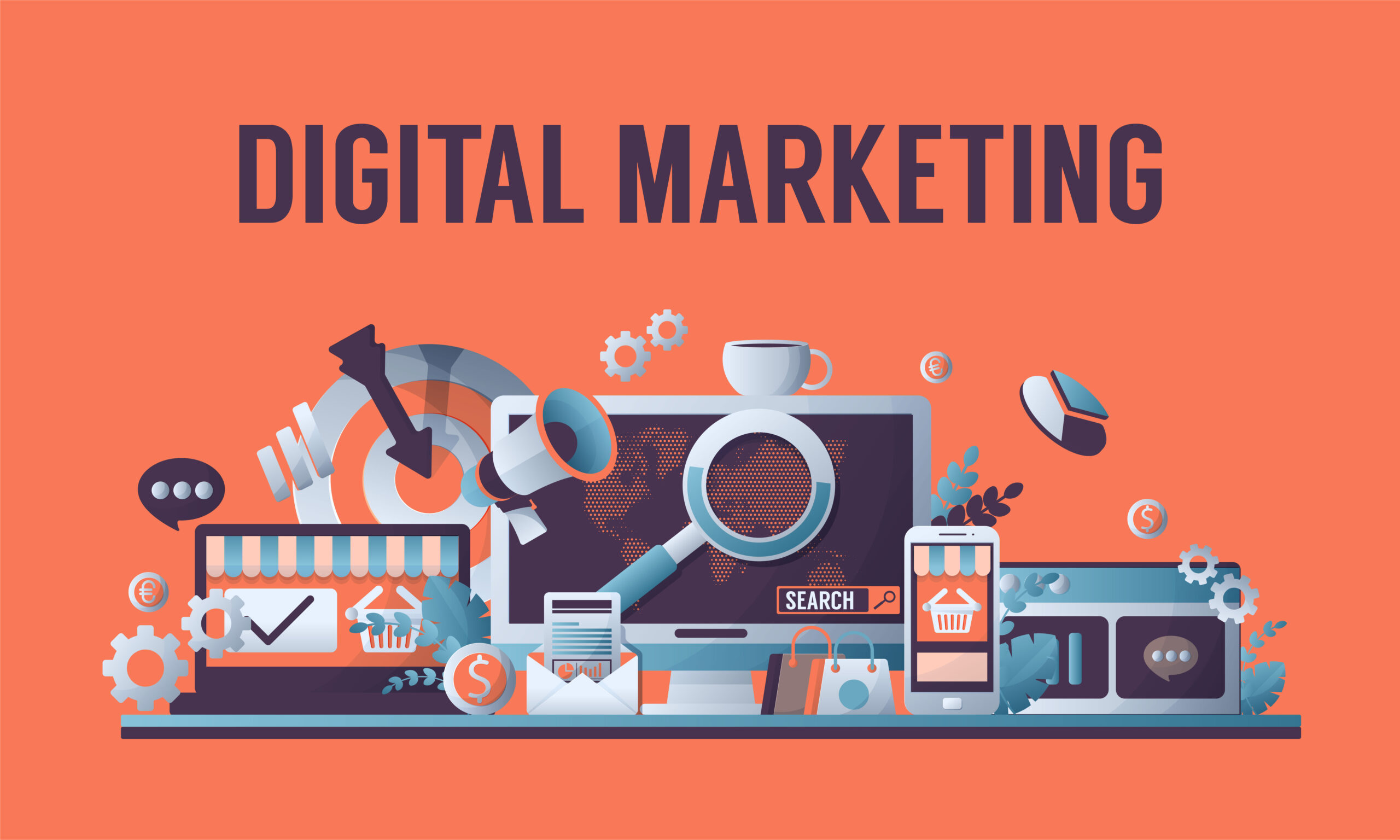Accepting These 8 Digital Marketing Trends, Which Will Rule in 2024
For organizations hoping to succeed online, staying ahead of the curve in the ever changing field of digital marketing trends is essential. It’s critical to adopt the newest trends that will rule the field of digital marketing as we move toward 2024. Let’s examine eight major themes that will influence how brands engage with consumers and achieve success in the upcoming year.

AI and Machine Learning Integration:
Digital marketing trends will increasingly revolve around the integration of Artificial Intelligence (AI) and Machine Learning (ML). Businesses can examine enormous volumes of data to learn important insights about the tastes, behavior, and trends of their customers by utilizing sophisticated algorithms. Chatbots powered by AI improve consumer interactions by offering individualized experiences and raising engagement levels. By utilizing AI, marketers may unleash the potential of predictive analytics, leading to enhanced targeting and customized content distribution.
Voice Search Optimization:
The way people look for information online is changing as voice-activated gadgets become more common. The increasing usage of virtual assistants like as Siri, Alexa, and Google Assistant means that content optimization for voice search is becoming more and more crucial. Marketers must modify their SEO tactics to address conversational queries by emphasizing natural language patterns and long-tail keywords. By creating content that follows the trends in voice search, marketers can make sure they stay visible in this expanding area of the internet.

Virtual reality (VR) and augmented reality (AR):
AR and VR are becoming essential elements of immersive marketing experiences as technology develops. Companies can utilize augmented reality (AR) to let buyers see things in real life before they buy them. Conversely, virtual reality presents chances to develop dynamic and captivating brand encounters. Incorporating AR and VR features into digital marketing may help firms stand out from the competition and establish unique experiences with their audience through immersive storytelling and virtual showrooms.
Marketing of Interactive Content:
Successful digital marketing trends revolves around engagement, and interactive content is becoming a more effective tool for this purpose. Polls, quizzes, and surveys are examples of interactive elements that draw users in and promote engagement. Real-time interaction through interactive webinars and live streaming promotes a sense of community around a business. Marketers may improve user experience, boost time spent on their platforms, and forge closer bonds with their audience by implementing interactive content into their campaigns.

Influencer Marketing 2.0:
Influencer marketing has progressed beyond endorsements and sponsored content. Businesses will work more and more with smaller-scale, highly engaged audiences—micro- and nano-influencers—in 2024. Long-term relationships will become commonplace, and relatability and authenticity will take precedence above celebrity status. Additionally, brands will use AI to find influencers that share their beliefs, resulting in more fruitful and meaningful collaborations.
Digital Marketing Trends with Privacy First:
Influencer marketing has progressed beyond endorsements and sponsored content. Businesses will work more and more with smaller-scale, highly engaged audiences—micro- and nano-influencers—in 2024. Long-term relationships will become commonplace, and relatability and authenticity will take precedence above celebrity status. Additionally, brands will use AI to find influencers that share their beliefs, resulting in more fruitful and meaningful collaborations.

Stories and Content That Expires:
Ephemeral content, like stories on Instagram and Snapchat, is becoming more and more popular. User engagement is boosted by these fleeting and real-time snippets, which instill a sense of urgency and FOMO (Fear of Missing Out). By telling aesthetically striking and captivating stories that connect with their audience, marketers may take advantage of this trend. A brand may keep its buzz going by incorporating exclusive updates, time-limited deals, and behind-the-scenes information.
Blockchain Technology for Online Advertising:
Blockchain technology is becoming more and more popular in the digital advertising industry, providing answers to problems like lack of transparency and ad fraud. Blockchain lowers the possibility of fraudulent activity by providing a reliable and safe means to track and authenticate digital transactions. By automating payment procedures, smart contracts can give publishers and advertisers alike access to a more transparent and effective ecosystem.
Conclusion:
Businesses that adopt these 8 digital marketing trends in 2024 will be at the forefront of innovation and client engagement. Building a strong online presence and achieving success in the digital sphere will depend on remaining flexible and modifying tactics to follow these trends as technology advances. Brilliko Institute of Multimedia provides accurate knowledge about digital marketing trends. The future of digital marketing trends is dynamic and exciting, with opportunities for immersive experiences made possible by AR and VR, as well as AI-driven customization.




